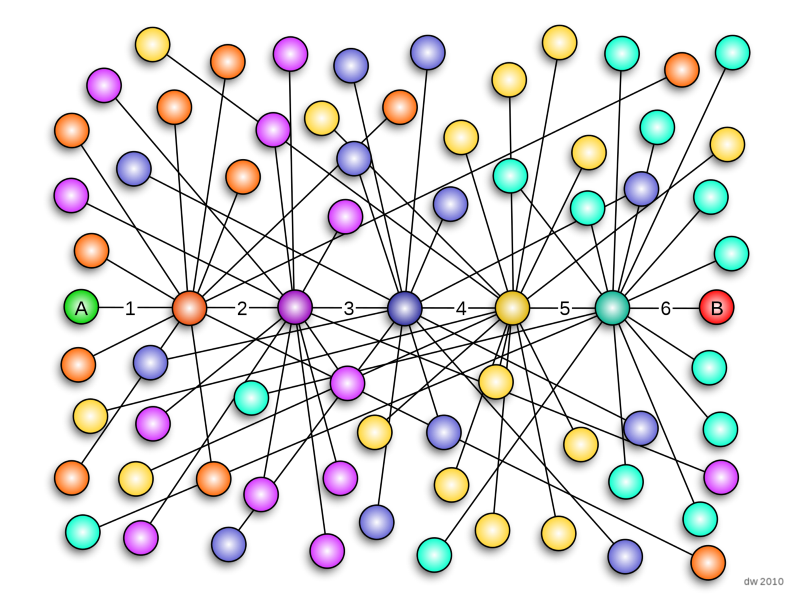This post is not going to be viral
As the headline suggests, this post is not going to be viral because it is not about an egg, a music video, a celebrity or a cat. As a matter of fact, given this post is text based, it is unlikely people will even read this far.
There is a small chance this post will go viral, but it is highly unlikely. I would like to explore why, and take some thoughts from this subject to my real point of this post later down the fold.

Six degrees of separation by Daniel (User:Dannie-walker) GFDL or CC BY-SA 3.0, from Wikimedia Commons
The famous Six degrees of separation idea is a pointer to where my problem lies. I can technically reach everyone in the universe in 6 steps, but it is unlikely any of them would be interested in my message if directly contacted.
Malcolm Gladwell in his book The Tipping Point lists the 3 agents of change:
- Connectors
- Mavens
- Salesmen
Those people will be the agents of change serving the epidemic of your message. Since my network has no direct connection to any of those three types of people, my posts are not going to become viral.
Let’s look a bit deeper into networks. Of course, there are many types of networks, but i would like to cover the social ones, without even mentioning the one that treats you as their product.
A typical person has up to 150 people whom one can maintain stable social relationships, according to Dunbar’s number. This means that out of the hundreds of people you are ‘friends’ with, you are actually in a relationship with approximately 150, and the rest are acquaintances.
This is not a bad thing. Your network of acquaintances is highly important, and will get you a job, help you in reaching beyond your typical 150 people and in general serve you well. The power of your acquaintances network is the subject of a famous paper by Mark Granovetter. The paper is called The Strength of Weak Ties, and covers how data flows between people using their acquaintances network.
Your network is your way to reach beyond your immediate reach, and comes with the size of it, the larger your network is, it is more likely you will reach far and beyond. This covers well the social aspects of a network, but how strong can a network be?
Albert-László Barabási explores this concept in his book Linked: The New Science of Networks, along with other concepts of networks. As pointed out in the book, some networks are so strong, you can’t escape them. A good example of this is the 2011 post by Steve Yegge, about building platforms. In Steve’s lingo, a platform is a strongly connected network.
The strength of your network will be one the main factors when you want to foster change. If your company has less than 150 employees, it will be fairly easy to maintain a stable relationship with all employees and move forward faster. This is one of the reasons startups can move much faster than a huge corporate. If, on the other hand your company has more than ~200 employees, scaling your relationship is going to be complicated.
In the case of a large corporate, the best way I know of fostering change is by building a large network of acquaintances, and trying to link yourself to the change agents, or become one of those. It is somewhat complicated to move things forward without the support of some key stakeholders, but if you succeed in establishing such a network, your ability to convince and cooperate with those key stakeholders will be greater.
Building a network is based on building trust. Every action you take will either give you credit, or will reduce your credit. This does not mean you should do things just to earn credit, such a behavior is frowned upon and is easily detected by people. The only likely outcome will probably be disrespect.
The best way to build a strong and diverse network is by being helpful, friendly and trustworthy. Use opportunities to connect with people you are in touch with, even if you do not have a close relationship with them, this will amplify your network diversity and will help you reach people you would not reach otherwise.
Diversity is an important point in your network. It helps you see and hear voices and points of view you would not see otherwise and helps you reduce the echo chamber effect. A diverse network will also surface opportunities that would not be available to people with similar or identical connections to their own interests and habits.